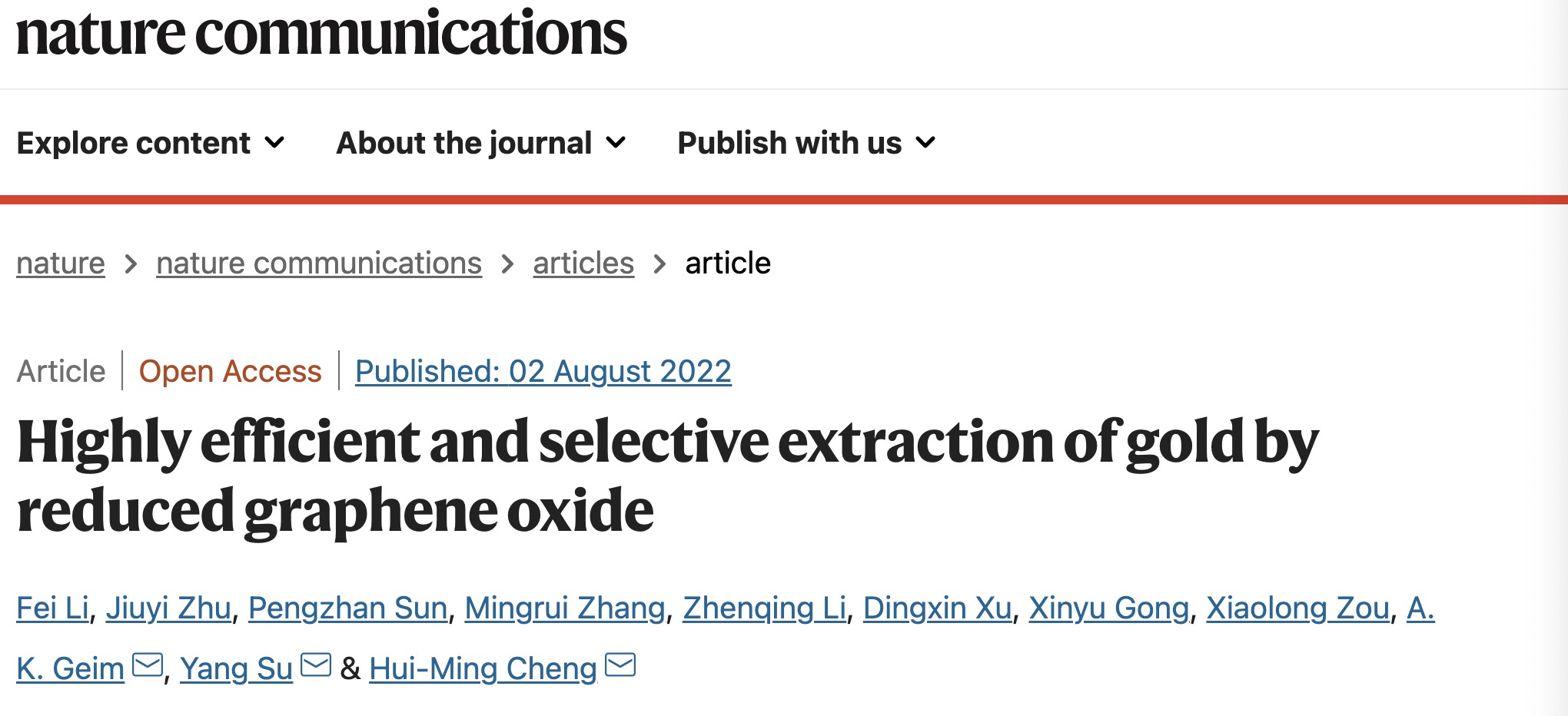
Screenshot of the published study. /Nature Communications
Screenshot of the published study. /Nature Communications
A study conducted by Chinese researchers and their British counterparts has recently found that reduced graphene oxide can extract gold from electronic waste with high efficiency.
As a good conductor of electricity, gold is widely used in electronic products, so the recovery of gold resources from electronic waste is of great importance.
However, it remains challenging to achieve high extraction capacity and precise selectivity if only a trace amount of gold is mixed with other metallic elements.
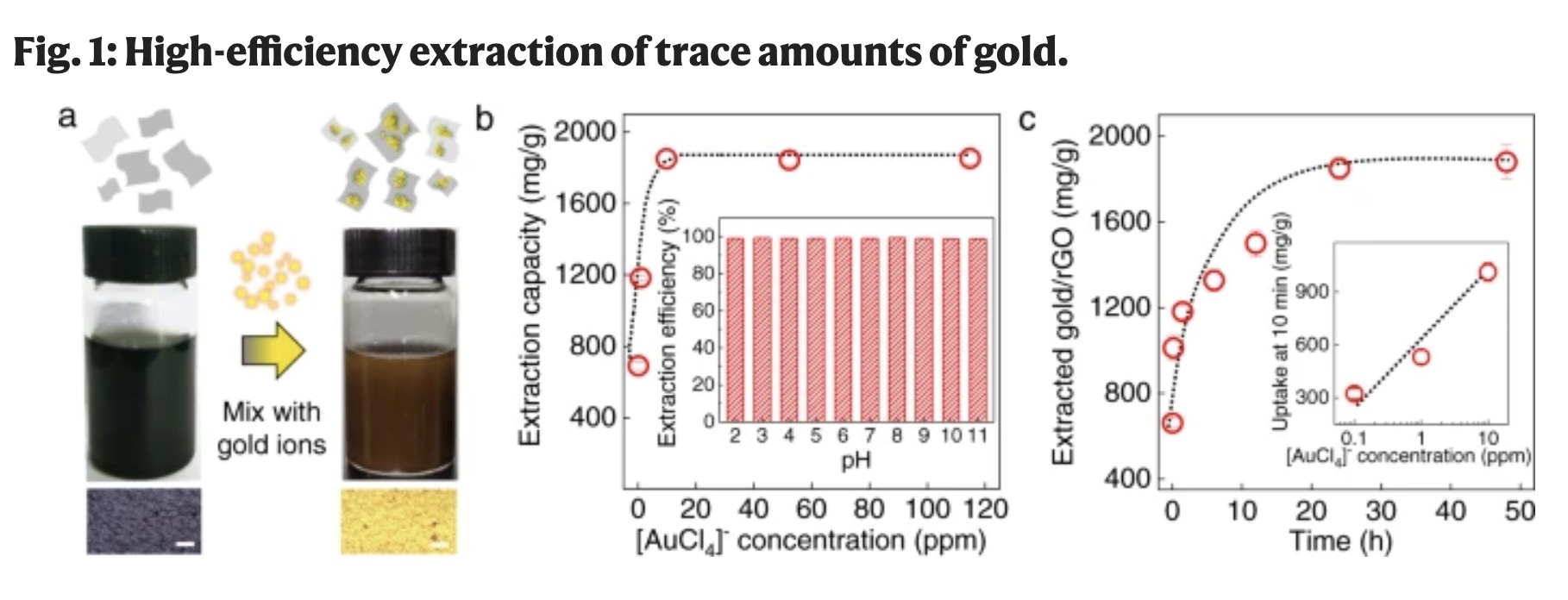
Illustration of high-efficiency extraction of trace amounts of gold. /Nature Communications
Illustration of high-efficiency extraction of trace amounts of gold. /Nature Communications
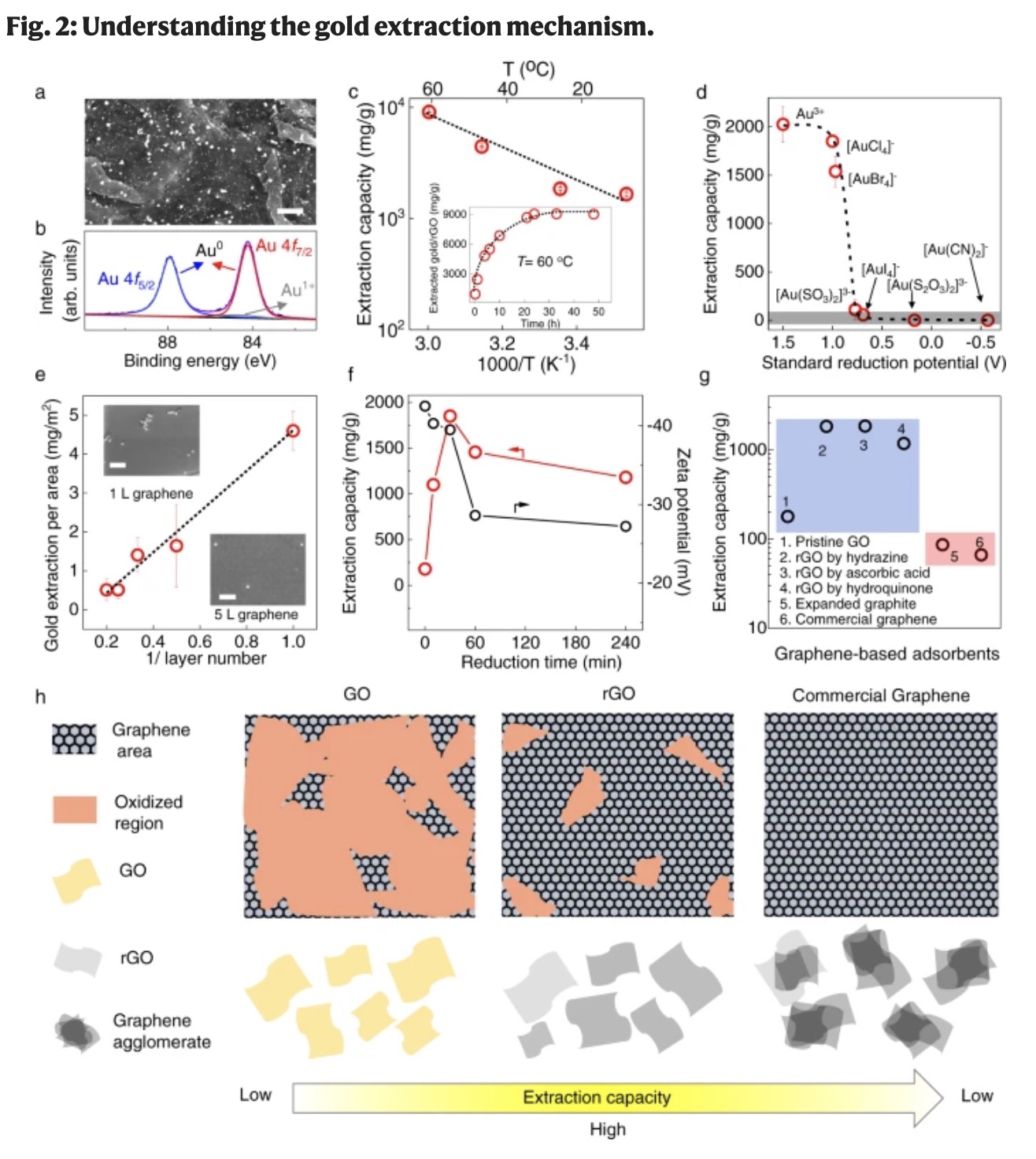
Illustration of understanding the gold extraction mechanism. /Nature Communications
Illustration of understanding the gold extraction mechanism. /Nature Communications
A group of scientists from Tsinghua University, Shenzhen Institute of Advanced Technology under the Chinese Academy of Sciences (CAS), Institute of Metal Research under the CAS and the University of Manchester found that reduced graphene oxide material is highly capable of extracting trace amounts of gold from electronic waste.
According to the study, published in the journal Nature Communications, this graphene material can accurately extract gold from electronic waste with no other coexisting metal elements, and without using additional energy and materials.
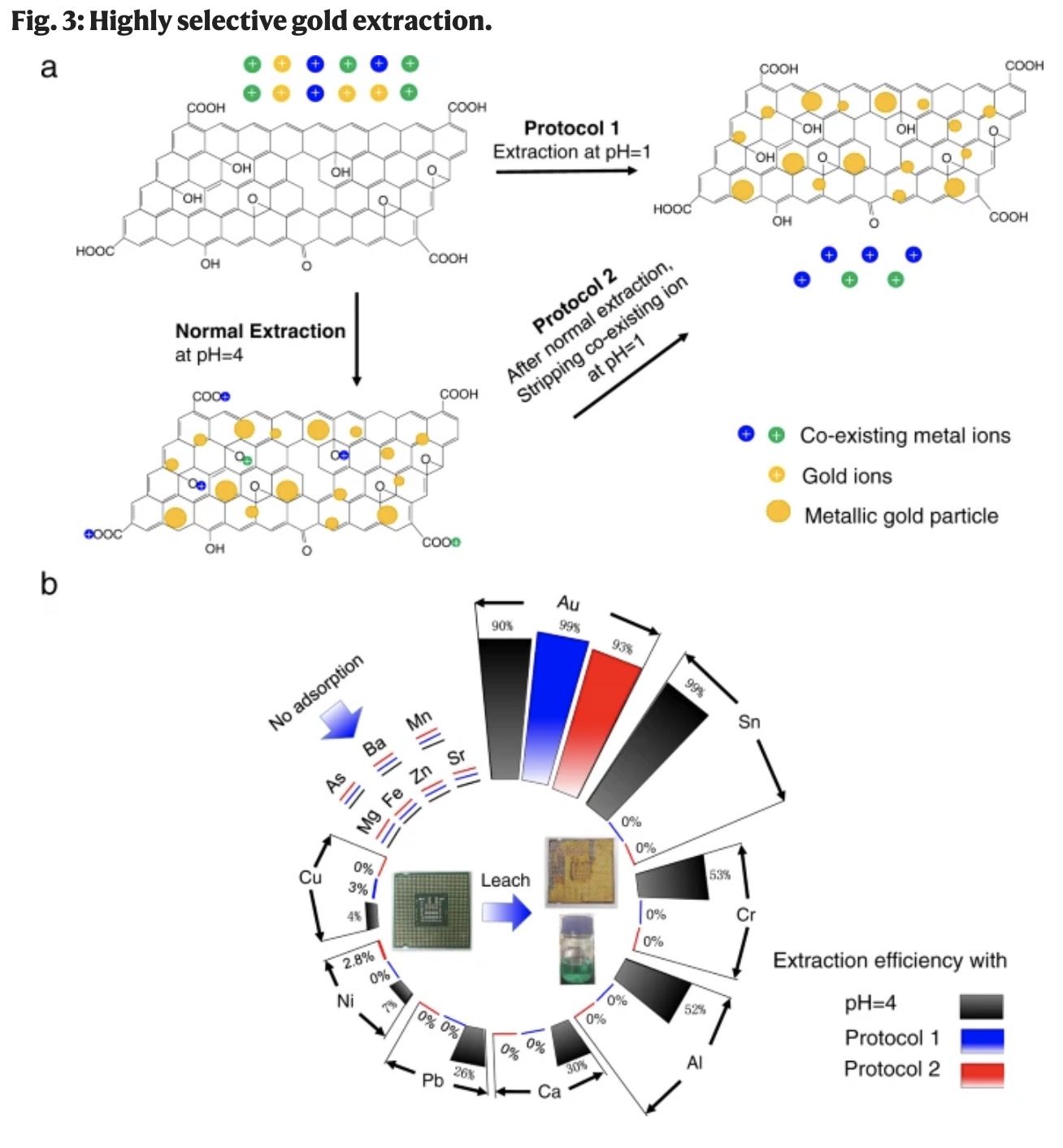
Illustration of highly selective gold extraction. /Nature Communications
Illustration of highly selective gold extraction. /Nature Communications
The researchers also developed a gold adsorption method based on graphene films, which is suitable for large-scale production and can efficiently and continuously recover gold resources from electronic waste.
The method uses commercial graphene oxide as raw material at a low cost, providing a new solution to the sustainable development of gold resources and recycling of electronic waste, according to the study.
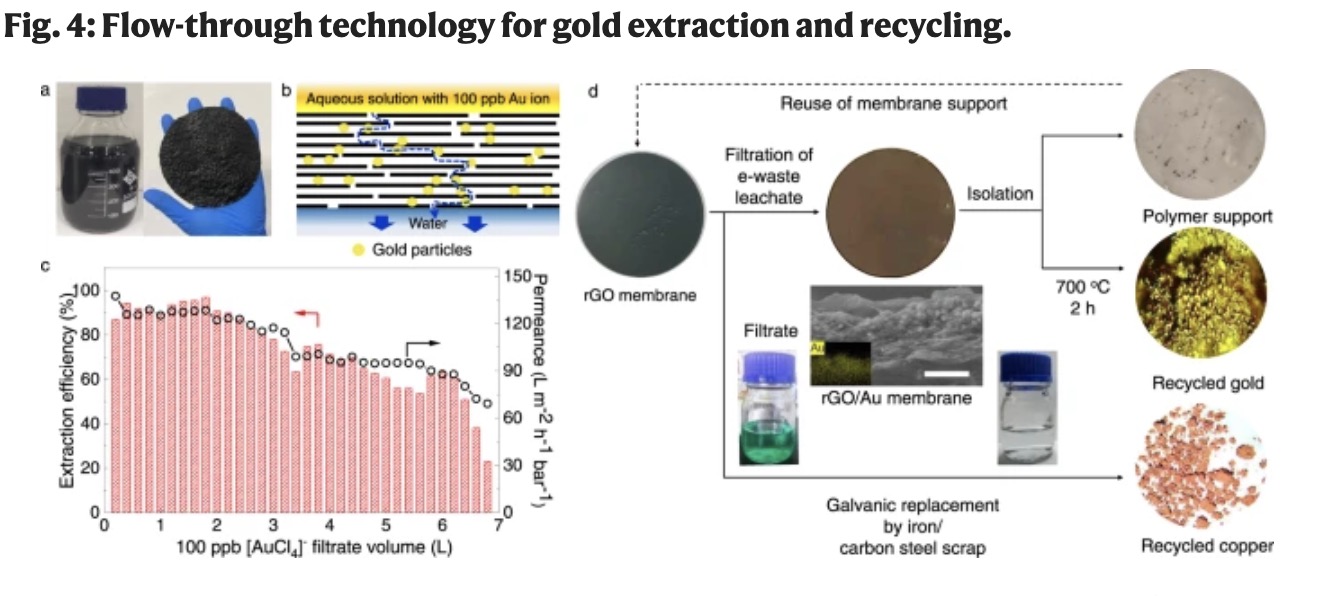
Illustration of flow-through technology of gold extraction and recycling. /Nature Communications
Illustration of flow-through technology of gold extraction and recycling. /Nature Communications

